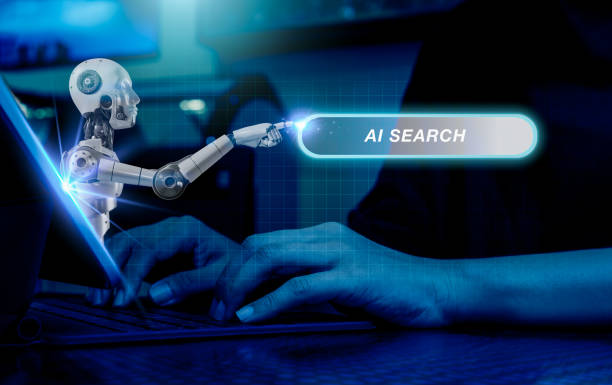We may earn money or products from the companies mentioned in this post.
Did you know the global AI market is set to hit $1.4 trillion by 2029? This shows how fast AI is changing our lives. It’s key for everyone to grasp the basics of this new technology.
In this article, we’ll dive into AI’s core ideas, its growth, and how it works with machine learning. You’ll see how AI is changing industries and what it might mean for our future.
Key Takeaways
- Artificial intelligence is a rapidly advancing field that is transforming industries and shaping our daily lives.
- The evolution of AI has been driven by advancements in computing power, data availability, and algorithmic breakthroughs.
- AI and machine learning are closely interconnected, with machine learning powering many AI applications.
- AI is being used in a wide range of industries, from healthcare and transportation to finance and entertainment.
- The future of AI holds both exciting possibilities and ethical considerations that must be carefully navigated.
Understanding the Fundamentals of AI
Artificial Intelligence (AI) is a field that’s growing fast. It’s exciting many innovators and the public. At its heart, AI is about making systems that can do things humans do, like learn and solve problems.
What is Artificial Intelligence?
AI covers a lot of technologies, from simple to complex. The definition of AIincludes machines that can see their world, process info, and act to reach goals.
The Evolution of AI Over Time
The history of AI started in the mid-20th century. Back then, researchers were trying to make smart machines. Since then, AI development has made big leaps, from simple rules to deep learning and neural networks.
Now, AI is used in many fields, like healthcare and finance. It’s also changing how we travel and enjoy entertainment. As AI grows, it’s clear it will change our lives and society a lot.
If you love tech or just want to know more, learning about AI is key. It helps us understand our digital world, which is changing fast.
AI and Machine Learning: A Powerful Duo
Artificial intelligence (AI) relies heavily on machine learning. Machine learning lets systems learn and get better over time without being told how. Together, AI and machine learning are unstoppable.
Machine learning uses a few main techniques to make AI smarter.
Supervised learning trains an algorithm with labeled data, teaching it to spot patterns and predict outcomes. Unsupervised learning lets AI find hidden insights and groupings in data by itself. Deep learning uses artificial neural networks to mimic how our brains learn.
These machine learning methods, combined with AI’s vast potential, open up new possibilities. They help AI solve complex problems, automate tasks, and get better on its own. As AI and machine learning grow, they’re changing our lives in big ways.
- Machine learning is key for AI to learn, adapt, and make smart choices.
- Supervised, unsupervised, and deep learning are the main ways machine learning works.
- The mix of AI and machine learning is changing industries and how we live and work.
AI: Impacting Our Daily Lives
Artificial Intelligence (AI) has become a big part of our daily lives. It changes how we live, work, and interact with others. From shopping tips on websites to smart assistants, AI makes our lives easier.
AI in Everyday Applications
AI helps us find products we might like on websites. It also makes our homes smarter with voice assistants like Siri and Alexa. These tools make our lives more convenient.
AI also helps in healthcare by analyzing medical data. It helps doctors find diseases early and create better treatment plans. Self-driving cars, powered by AI, could make driving safer and reduce traffic.
The Future of AI in Our Society
AI is getting better and will change our lives even more. It will make businesses run smoother and help us work better. AI will also improve healthcare and transportation.
AI is already changing how we live and work. As it keeps getting better, our lives will get even better. We’ll see more AI in our daily lives, making everything more efficient and enjoyable.
The AI Revolution
We are in the midst of a major change thanks to artificial intelligence (AI). This AI revolution is changing industries and our daily lives. It brings both hope and challenges for the future.
AI is getting smarter and smarter, leading to new uses in many areas. Businesses use AI to improve how they work and serve customers. In healthcare, AI helps find diseases early and tailor treatments.
The job market is also changing, with more jobs in AI. But, the AI revolution also brings up big questions. We need to talk about privacy, fairness, and how to use AI right.
It’s important for everyone to work together on these issues. We must make sure AI benefits us all while keeping society safe. As you explore this new world, stay updated, join the conversation, and see the good in AI while thinking about its effects on us.
FAQ
What is Artificial Intelligence (AI)?
Artificial Intelligence (AI) is a field of computer science. It focuses on creating systems that can do things humans do, like learn and solve problems. This includes making decisions and seeing things around them.
How has AI evolved over time?
AI has changed a lot since the 1950s. It started with simple rules and has grown to include machine learning and deep learning. This growth is thanks to better computers, more data, and new ideas in algorithms.
What is the relationship between AI and machine learning?
Machine learning is a part of AI. It helps systems learn from data without being told how. AI uses machine learning to do many things, like predict what we might like to buy.
How is AI being used in our daily lives?
AI is in many parts of our daily lives. It helps with things like shopping suggestions, talking to our phones, and recognizing pictures. As AI gets better, it will change how we live and work even more.
What are the potential future applications of AI?
AI’s future looks very promising. It could help in healthcare, like finding new treatments, and in cars that drive themselves. It could also make finance safer and more efficient. AI is set to change many areas of our lives for the better.
What are the ethical considerations surrounding the development of AI?
As AI gets smarter, we need to think about its ethics. We must worry about fairness, privacy, and who is responsible when AI makes mistakes. It’s important to make sure AI helps us without causing harm.
Understanding AI (Artificial Intelligence) involves exploring its definition, types, applications, underlying technologies, and ethical considerations. Here’s a breakdown of these key aspects:
### 1. Definition of AI
Artificial Intelligence refers to the simulation of human intelligence in machines programmed to think and learn like humans. AI systems can perform tasks that typically require human intelligence, such as problem-solving, understanding natural language, recognizing patterns, and making decisions.
### 2. Types of AI
AI can be categorized into several types based on its capabilities:
– Narrow AI (Weak AI): This type of AI is designed for a specific task. Examples include virtual assistants like Siri or Alexa, recommendation systems, and chatbots.
– General AI (Strong AI): This is a theoretical form of AI that possesses the ability to understand, learn, and apply intelligence across a wide range of tasks, similar to a human. General AI does not yet exist.
– Superintelligent AI: This is a hypothetical AI that surpasses human intelligence in all aspects, including creativity, problem-solving, and emotional intelligence.
### 3. Applications of AI
AI is applied across various industries and sectors, including:
– Healthcare: AI is used for diagnostics, personalized medicine, drug discovery, and robotic surgery.
– Finance: AI assists in fraud detection, algorithmic trading, credit scoring, and customer service chatbots.
– Transportation: AI powers autonomous vehicles, traffic management systems, and route optimization.
– Entertainment: AI algorithms are used in content recommendation, video games, and special effects in movies.
– Manufacturing: AI enhances predictive maintenance, quality control, and supply chain optimization.
### 4. Underlying Technologies
Several technologies underpin AI systems:
– Machine Learning (ML): A subset of AI that allows systems to learn from data and improve over time without being explicitly programmed.
– Deep Learning: A subset of ML that uses neural networks with many layers (deep neural networks) to analyze various forms of data.
– Natural Language Processing (NLP): This area of AI focuses on the interaction between computers and humans through natural language, enabling tasks like language translation, sentiment analysis, and text generation.
– Computer Vision: This field enables machines to interpret and understand visual information from the world, powering applications like facial recognition and image analysis.
### 5. Ethical Considerations
As AI technology advances, ethical concerns arise, including:
– Bias: AI systems can perpetuate or amplify existing biases present in training data, leading to unfair treatment in applications like hiring or law enforcement.
– Privacy: AI can infringe on personal privacy, especially in surveillance and data collection practices.
– Job Displacement: Automation driven by AI can lead to job losses in certain sectors, prompting discussions about the future of work.
– Accountability: Determining responsibility for decisions made by AI systems can be complex, especially in critical areas like healthcare or autonomous driving.
### 6. Future of AI
The future of AI holds promise and challenges. Advancements may lead to more sophisticated systems capable of understanding context and emotions, but they also require careful consideration of ethical frameworks, regulations, and public acceptance.
Understanding AI is crucial as it increasingly impacts various aspects of daily life, industry, and society as a whole. Ongoing education and discussions about its implications will help shape its development in a responsible manner.
*We may utilize AI content


